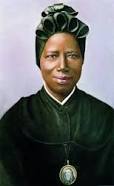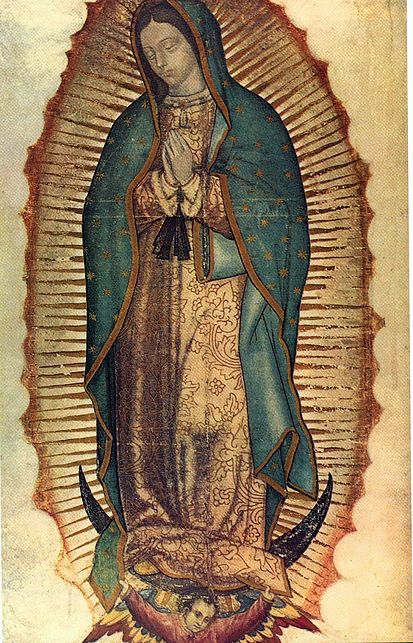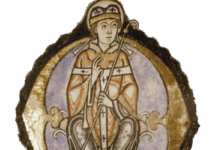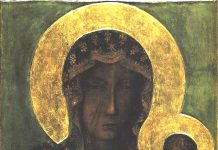On this day in 1947, February 8th, Sister Josephine Bakhita completed the long and eventful journey of her life. Born around 1869 – she was never quite sure the precise date or year – her childhood was spent happy and fulfilled growing up in the region of Darfur, Sudan, which was not then the dystopic and dysfunctional warzone it is today. But profound evil still lurked around the corner, as Bakhita (a name given to her by her Islamic captors, meaning, ironically, ‘fortunate’, she having lost the memory of her original name) was kidnapped and sold into slavery, two years after her elder sister (what their parents must have gone through, we can scarcely imagine). As an aside, Islam is historically one of the largest institutions for slavery in the modern world.
Thus began a life of almost indescribable suffering, torture, physical and psychological abuse, whipping, scarring and mutilation for the ‘fortunate one’, all at the hands of her various ‘owners’. The son of one of them beat her so severely, after she inadvertently broke a vase, that she spent a month unable to move. And here is a description of one of Josephine’s punishments:
As her mistress was watching her with a whip in her hand, a dish of white flour, a dish of salt and a razor were brought by a woman. She used the flour to draw patterns on her skin and then she cut deeply along the lines before filling the wounds with salt to ensure permanent scarring. A total of 114 intricate patterns were cut into her breasts, belly and into her right arm.
We may wonder at such evil, and the suffering of the innocent is perhaps the thorniest question in theodicy: Why does God allow such was a question that likely went through the yet-unformed mind and soul of Josephine. Why her?
The travails only ended when a kindly soul, who had ‘bought’ her, brought her to Italy; Bakhita was placed with the Cannosian Sisters; it was the first time she had been treated with kindness and love, and she refused to leave, a decision backed up by the Italian authorities, declaring her slavery null and void. By the grace of God, she soon responded to the fullness of truth that the Faith offered, and converted to Catholicism, being baptized on January 9th, 1890 – taking the full name of Josephine Margaret Fortunata (the Latin translation of her Arabic patronymic Bakhita). We might smile at the irony, but Josephine knew that this was the path God had traced our for her, and it must have been with great joy and peace that she received her first Holy Communion. A few years later Josephine made the final profession of her vows in religious life, fittingly enough, in the presence of none other than Archbishop Guiseppe Sarto, the future Pope Saint Pius X.
Sister Josephine spent the rest of her life as a religious sister in the convent, praying, working, occasionally giving talks, and training to Sisters and others who were embarking on missionary journeys to Muslim territories. She was known for her joy and her kindly demeanour, and, though living a rather hidden existence, was soon renowned throughout Italy as a saint. In her final years, the suffering increased, and she was confined to a wheelchair; when asked how she was, the Sister would reply with a smile, “As the Master desires”. Towards the end, she had flashbacks to the buried horrors of her days in slavery, offering up the trauma in vicarious reparation for the persistence of this nigh-ineradicable evil: Homo lupus hominis. Man is all too often a wolf to his fellow man.
Her sanctity and personality are encapsulated in an anecdote recounted of her: A young student once asked Bakhita: “What would you do, if you were to meet your captors?” Without hesitation she responded: If I were to meet those who kidnapped me, and even those who tortured me, I would kneel and kiss their hands. For, if these things had not happened, I would not have been a Christian and a religious today.
What can one say of such forgiveness and such trust in the winding and mysterious ways of God’s providence?
Her last words, as she lay dying on this February 8th in 1947, a Saturday, were,
Yes, I am so happy: Our Lady… Our Lady.
Would we might say the same on our own deathbeds…
Josephine Bakhita was canonized by a fellow saint, John Paul II, on the memorial of Saint Therese of Lisieux, October 1st, in the great Jubilee year 2000, who had also beatified her eight years earlier. The great Pope chose his saints wisely, leading us into the third millennium. He said of her:
“The law of the Lord is perfect, … it gives wisdom to the simple” (Ps 19: 8).
These words from today’s Responsorial Psalm resound powerfully in the life of Sr Josephine Bakhita. Abducted and sold into slavery at the tender age of seven, she suffered much at the hands of cruel masters. But she came to understand the profound truth that God, and not man, is the true Master of every human being, of every human life. This experience became a source of great wisdom for this humble daughter of Africa.
We must live in hope, and Pope Benedict has his own thoughts on Sister Bakhita in his encyclical, on that theme, Spe Salvi, wherein he writes of her, after she had found a refuge at the convent in Italy:
“Now she had “hope” —no longer simply the modest hope of finding masters who would be less cruel, but the great hope: “I am definitively loved and whatever happens to me—I am awaited by this Love. And so my life is good.”
God can indeed bring the greatest good out of the greatest evil, and Saint Josephine is an invaluable patron in our current battle against all the atrocities done in the name of God.
After her death, her body lay in repose for three days as thousands filed past, seeking her intercession. Her body is in a glass coffin, apparently incorrupt, in the church of the Holy Family at the Canossian convent in Schio, awaiting the resurrection of all the just.
Ora pro nobis, Sister Bakhita!











